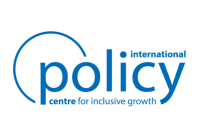Resource information
Sharp inequalities in the distribution of land remains a major cause of extreme poverty in many developing countries. Some instances are the result of ownership patterns inherited from colonial administrations, others are linked to the struggle for economic prosperity in the post-independence era.Landlessness is therefore a significant problem for the rural poor. Most remedies that have been undertaken previously have not yielded positive results, as can be witnessed in Southern Africa today. This policy brief thus discusses how the land question can be addressed, through effective and equitable land reform policies.The paper examines some state-led models of land reform in various contexts, from Korea, Cuba and Bolivia to the Philippines and Japan. Market-led models, which tend to dominate the land reform arena, are also assessed. Examples include Brazil, Colombia and South Africa. The authors argue that the historical record shows neither state-led nor market-led land reform models have been wholly successful in removing these inequities.There is thus a need for an alternative model of land reform that could both satisfy legitimate and urgent demands for social justice and develop an agrarian system that is economically viable. The authors propose a "Distributive Alternative" containing four components:The First Pillar: the rural poor need to establish their own independent organisations - mass mobilisation of the landless has, in many cases, led to successful land reform programmesThe Second Pillar: a broad pro-reform political coalition should wield decisive political influence at the national level - reform efforts led by the poor require a base which is politically broad enough to ensure active state support for carrying through redistributionThe Third Pillar: genuine material support remains important - such as through public investment, state loans and technical assistanceThe Fourth Pillar: interventions are unlikely to succeed unless they are part of a growth-oriented development strategy - economic policies need to be geared towards pro-poor growth.



